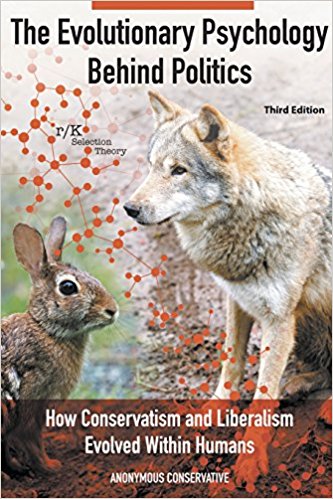Chinese household debt has risen at an “alarming” pace as property values have soared, analysts say, raising the risk that a real estate downturn could send shockwaves through the world’s second largest economy.
Loose credit and changing habits have rapidly transformed the country’s famously loan-averse consumers into enthusiastic borrowers.
Skyrocketing real estate prices in major Chinese cities in recent years have seen families’ wealth surge.
But at the same time they have fuelled a historic boom in mortgage lending, as buyers race to get on the property ladder, or invest to profit from the phenomenon.
Now the debt owed by households in the world’s second largest economy has surged from 28 percent of GDP to more than 40 percent in the past five years.
“The notion that Chinese people do not like to borrow is clearly outdated,” said Chen Long of Gavekal Dragonomics.
The share of household loans to overall lending hit 67.5 percent in the third quarter of 2016, more than twice the share of the year before.
You can almost feel the giddy euphoria of r-selection taking hold in the above excerpt, as dopamine floods the brains of the people. You can also begin to feel the threat blindness, and the hunger for more resources.
What is unique this time is the scale of the rabbit-super-empire that will all collapse simultaneously. It was one thing for Rome to fall, in a time when the idea of Rome interacting is any meaningful way with China would have been silly.
This time, the collapse will encompass the entirety of Western Civilization and Asia, all at once, in a time when any nation can interact with another easily and quickly, facilitating war.
The question arises, why did the lure of collapse-inducing debt-spending manage to be avoided by Russia and some Eastern European countries? Why wouldn’t Russia, Hungary, and Bulgaria partake of the euphoria of debt spending, and end up in as precarious a financial situation as the US, Spain, Italy, Britain, China, and so on? Some will argue opportunity, and yet their nations have undoubtedly more K-selected populations with respect to family and two-parent rearing, with much less tolerance for the r-strategists within their populations.
The only reason I can see is a different psychology, more forward-looking and K-selected, triggered in the populations by a protracted period of shortage that was produced by the destruction wrought by their last interaction with the r-strategy of Communism.
As with most of r and K, the only thing that can advance one or the other is their exact opposite. They had the benefit of r’s destruction, making them more K, while we had the detriment of K’s success, making us more r.
Now we will endure the consequences.
Tell everyone about r/K Theory because they deserve to know why the world is going to collapse


[…] r-selection Grows In China […]
communism fails and creates K-selection, then capitalism comes,
then capitalism creates prosperity that breeds r-selection, that leads to socialism, that fails breeding K-selection…
when will this shit stop?
AC, I’m currently in a Christmas lights arms race with 3 of my neighbors, while I’m pretty sure this is K behavior I have to be sure. Also never had any foreclosures in my neighborhood do you think American K’s have been saving the US financial system since 2008?
It will only be r-selected if you lose. Make us proud here.
I am increasingly convinced that the thing which has kept the financial system afloat are all the hijinks the melonheads have come up with to devalue what you earn. I was just looking through a Christmas Candy catalog. The diminution in size of everything, combined with the increase in price is astounding. And I see that all over. Everything costs more for less, and a crappier product to boot.
Russia was not spared by the debt spending craze. At least not under Yeltsin. Yeltsin basically sold russian resources under value, opened debt spending, did nothing to prevent US american companies to cause environmental disasters etc. (And in this time, Drug addiction began to spread.)
Alexander Dugin calls this time in russian history a period when Russia basically went lunatic. He says there, Russia was basically like a drug addict risking to lose everything it had in gambling.
This was one reason, why military personnel and people like Eduard Limonov basically tried to physically remove Yeltsin from political power.
When Putin rose up to power, he corrected Yeltsins wrongdoings. The industrials who were thrown into prison were no dissidents, like the west claims, but people who profited from the shady government deals of the Yeltsin era. Putin threw the international corps out of the country and revoked most of these deals.
Because of the Yeltsin era which mostly benefited deviants and corrupt politicians, Liberalism has a pretty bad name in Russia and some russian economists even praised Ludwig von Mises and Friedrich August von Hayek for providing a “weapon to destroy liberalism”. And this is also one reason why the Russians still hold Communism in high regards. (Besides the reason that Stalin actually started to fight the “true to the book” marxists and returned to christian traditions of the russian empire.) The Communists were at least not as stupid as Yeltsin.
The role of Stalin stays a mystery: He was fine with murdering 7 million Christian Ukrainians yet later he wiped out the KomIntern (while in a war with Hitler who did the same thing!) and later reinstated Christianity…. only to be poisoned like FDR before him – as I assume.
On topic of China and Living standards, the most telling example might be Kowloon Walled City: https://en.wikipedia.org/wiki/Kowloon_Walled_City (Besides the funny fact that people preferred to live in a neighborhood run by the mafia, over a city controlled by the government.) The population density in many chinese cities ist scary.